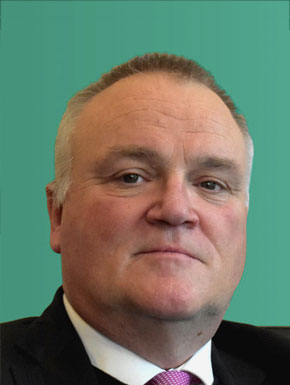
Ron Brown qualified as a Social Worker over 30 years ago, has an MBA in Corporate Finance. Ron is a Governor of a community focused “Outstanding” (SEND) School.
Ron has extensive experience across the sector in the public, not for profit, and commercial areas holding a number of operational and then senior roles giving him a comprehensive understanding of the Health and Social Care Sector. He has developed a specialist focus on Learning Disability, Autism and PMLD over the past 20 years or so.
Ron’s purpose is driven by developing and delivering excellence and value via innovation, creativity and working with service users and families. He has a passion for a more transformational approach to care delivery and systems utilising diversity of provision and end user and family choice as opposed to overly restrictive regulatory regimes and professional over reach; which he believes are acting to restrict supply and choice and impact adversely on value and outcomes.
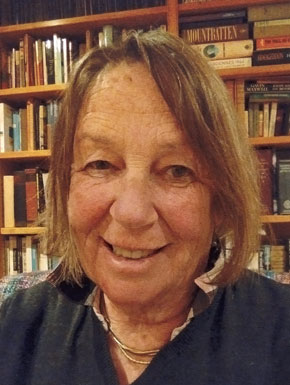
I have a life-time of lived experience as the older sister of a Down’s brother, now 65 years old, who until two years ago had spent a successful, fulfilled adult life in a village community established and run by Cottage and Rural Enterprises (Care) . Taken over by Hft (Home Farm Trust) in 2015 his happy settled life was threatened with devastation when Hft announced the closure of the residential community where he had lived for nearly 30 years.
After a strongly fought campaign and the intervention of Specialised Supported Housing his home was saved and given new life when the 30 adults with learning disabilities and/or autism became assured shorthold tenants of their five shared bungalow homes, commissioned as Supported Living placements.
Through Rescare, the charity which supports the families of people with learning disabilities, I discovered that the threat which had faced my brother was common to hundreds of other people with learning disabilities and their families across the country. A group of us decided to join forces in order to campaign for a change in the Government and CQC policies which we believe have led to these closures and which currently deny registration of care provision for people with learning disabilities and/or autism in group and village communities.
All we ask is that our adult children, our brothers and sisters are given the same CHOICE as everyone else in society to live how they CHOOSE, and if that CHOICE is to live in a group or village community, then that CHOICE should not be denied. I believe that that denial of CHOICE amounts to institutional discrimination against people with learning disabilities and/or autism.

KATIE BOOTH (Vice-Chair)
Dr Catherine Booth (Katie) is now retired after a long career in academic nursing. She worked as a heath visitor when her daughter was small, has developed open learning materials for health care professionals and as a lecturer and researcher at the Universities of Liverpool and Manchester.
Latterly she was Director of the Macmillan Research Unit at the University of Manchester. Her main research interests concerned the well being of people with long term heath conditions and those needing palliative care.
Her connections with Rescare and learning disability arose from the problems associated with her older brother, whose unpredictability and violence overshadowed her childhood. Her long experience working with the NHS, Universities and major charities has been very useful in her current role as a Trustee of Rescare and Vice Chair of OLOC
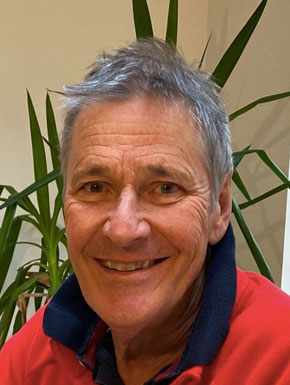
DAVID WILKS (Chair)
My brother Bernard had Downs Syndrome. He lived in Oxford with our Mum and Dad until in his late twenties. My parents spent many years trying / fighting to find somewhere appropriate for Bernard to live, conscious that he was going to outlive them. Eventually they discovered the village communities established by the charity Care a decade before. They were founded precisely to cater for people with learning disabilities like Bernard. The only village that had a vacancy was at Stanley Grange in Lancashire. Fortunately, I was working in South Manchester – relatively nearby. So, Bernard moved to live at Stanley Grange and he lived there very happily for 35 years until he died four years ago. For me, that meant that all my career decisions thereafter were based on being close to Bernard so that he could come and stay with my family regularly at weekends throughout the year.
When Hft threatened Stanley Grange with closure I along with other members of the Family and Friends Forum were able to thwart that attempt. We bought Stanley Grange ourselves and appointed a new care provider.
In my professional life, I worked for twenty years as a management consultant, I used to help organisations create and sustain high performance working environments in which people wanted to give that little bit extra each and every day because of the way they were led. In the 1980s, I stood as a parliamentary candidate for the SDP, and I was an officer of the Manchester Council of Community Relations. I am married to Jenny, a cancer research scientist, and I have two sons who live in London.
Now that I am retired, I want to try to persuade the CQC to change guidelines which are used by care providers to justify closing village communities like Stanley Grange.
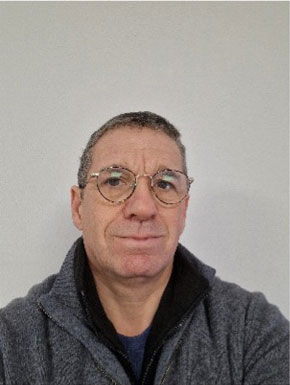
My older sister, Kim, lived for 40 years at Ravenswood Village, set in the countryside just outside the town of Crowthorne, Berkshire. She faced many challenges due to her learning disability and bipolar disorder. Helped by a network of support including advocates, general practitioners, psychiatrists, family members, carers, and local authority social workers Kim lived in an environment that gave her the greatest independence, freedom, security and social network within a safe environment that respected her dignity.
At 59, I have experienced a life-time of involvement with others in helping my sister to choose her preferred place of residence to meet her specific and unique needs. I was a member of the founding families of ‘Kith & Kids’, a self-help group for families with a learning disabled member.
In my younger years I was a member of various volunteer groups that supported people with a learning disability. I have a PhD in Pharmacology and I am currently a Director of a property investment company.
I am a trustee of a small charity, the Doreen Collins Charitable Trust that supports families who have a member with a learning disability.
It is ironic that CQC guidelines, which are predicated on giving people with a learning disability choice and control of where they choose to live, actually remove the choice of village community living. No such discrimination exists in any other form of regulated residential care and we call on the CQC to correct this.
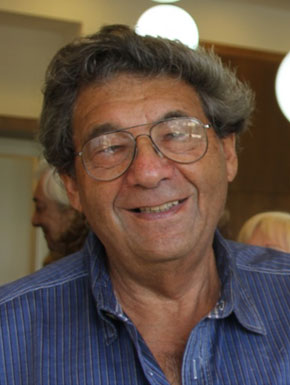
My daughter Kim, who had severe learning disabilities combined with Bi-Polar, (she passed away one year) caused me to be involved as an active parent (alongside my wife Doreen) for over 50 years. You can read Kims story on the ‘our life our choice’ website.
With another family I started the charity Kith and Kids, a self-help group for families, running a range or programmes using volunteers and professionals in holiday programmes throughout the year – the charity is still developing 50 years later. I authored a book ‘Kith and Kids’ which tells the story of the group.
With another father of a child with a learning disability I started a charity now known as Disability Law, a free advice service for those with autism and /or learning disability. I was also involved in starting the charity Contact a Family.
I was the chairperson of Haringey Mencap for 23 years, the chairperson of London Mencap for 9 years, and the Vice-Chairperson of National Mencap for 3 years.
I Was a trustee of Norwood and many other charities and voluntary groups over the years and I sat on the Ravenswood Village Families Association committee for over 30 years where Kim, supported by her family, chose to live.
I have organized over 12 National conferences mainly related to self-help groups and the law as it impacted on learning disability and I have lectured and participated in many conferences as a speaker and participant, both in the UK and Europe.
I co-founded Reserve Power, a self-help advocacy group, and I am a trustee of the Doreen Collins Charitable Trust that supports families with a member who has learning disability.
I received an Honorary MA from the Open university for assisting in developing courses for students wishing to become social workers and was honoured with an OBE from the Queen for work in the learning disability field.
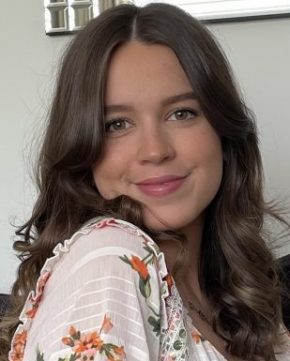
KATIE BIRCH (Campaign Officer)
Having had the opportunity to have lived in five different countries across Asia throughout my upbringing, I returned to the UK to pursue my Bachelor’s degree in Psychology and Criminology at the University of Liverpool, achieving a First-class honours in 2019. Subsequently, I obtained my Associate Level CIPD Diploma and welcomed my wonderful son into the world in 2022.
I joined as Campaign Officer for the Our Life Our Choice campaign in February 2024. I am dedicated to advancing and guiding our mission onto the public forum, and I am sincerely grateful for the chance to work on such a vital and impactful campaign.

My career as an investigative reporter on the Sunday Times, and then as a C4 TV journalist, came to an abrupt halt when my middle child was born with Downs Syndrome. Her GP immediately recommended Steiner Camphill, a choice which was opposed by Gwent Social Services. So my three children and I moved to Bristol. Unfortunately, they also pushed for foster care over residential schooling. After appeal, Isabel spent ten wonderful years at the Ringwood Camphill Sheiling School. I joined Rescare and became an early trustee of Camphill Families and Friends (CFF), knowing how the family view was/is so often ignored. As Camphill Village Trust (CVT)’s first press officer, I co-produced a first BBC news item on Botton Village, with its work-centred, live-in volunteer co-worker model, on the North Yorkshire Moors.
Disregard of our parental advice, against mainstream college sex education, caused Isabel, 19 to be made pregnant against her wishes. Miraculously, she transfered to The Mount Camphill College, who asked Isabel to become a “nanny” for her houseparents’ youngest toddler. The healing powers of that intentional community cannot be praised enough.
However, a few years later when I used this example publicly, to protect the live-in volunteer co-worker model at CVT communities, against the hostile managerial takeover of the charity, Isabel was evicted from her adult CVT community. She’d been medicated with inappropriate anti-psychotics and went to live in a nearby residential home. The new CVT managers, ignoring family pleas, threatened co-workers with eviction if they refused to sign up as employees. Rescare and I worked with the new Action for Botton to make the destruction of this village community public. Our second BBC Look North broadcast and Private Eye brought this to national attention. Eventually a compromise allowed the formation of a new Esk Valley Camphill Community, which rents eleven CVT properties, and owns the Danby health shop and a new house with a market garden. As you can see, I am passionate about these effective models of care, as is the Alliance for Camphill, of which I am a founder trustee.
Over 10 years ago, because Rescare had always been there for me through the years of trauma, I was honoured to become Rescare’s Chair. We continue to support each other, as most of the staff and trustees have personal experience of problems arising from supporting a person with learning disability in the family. Since 2019 we have been working hard to re-configure the charity. We have modernised our operations, recruited more experienced trustees, and became much more outward facing. We are pleased to have played a central role eighteen months ago in setting up and supporting the family groups and members who now form Our Lives Our Choice.

HARRY ANDERSON
All Harry’s working life was as a litigation solicitor at Herbert Smith (now Herbert Smith Freehills), based in the City. He started their Hong Kong office in 1982 where he lived for 5 years and became Head of Litigation in the late 90’s. He has a daughter aged 48 with a rare condition called Dandy Walker Syndrome, who has lived in village communities for most of her life.
He has experienced the CQC’s bias against such communities first hand. He fought hard with others to save her last care home, St Elizabeth’s Centre near Much Hadham, which specialized in Epilepsy, but a serious lack of care staff meant there were safety issues which could not be overcome. He is passionate about our campaign to change the CQC’s misguided guidelines which impact particularly on those with severe learning difficulties.
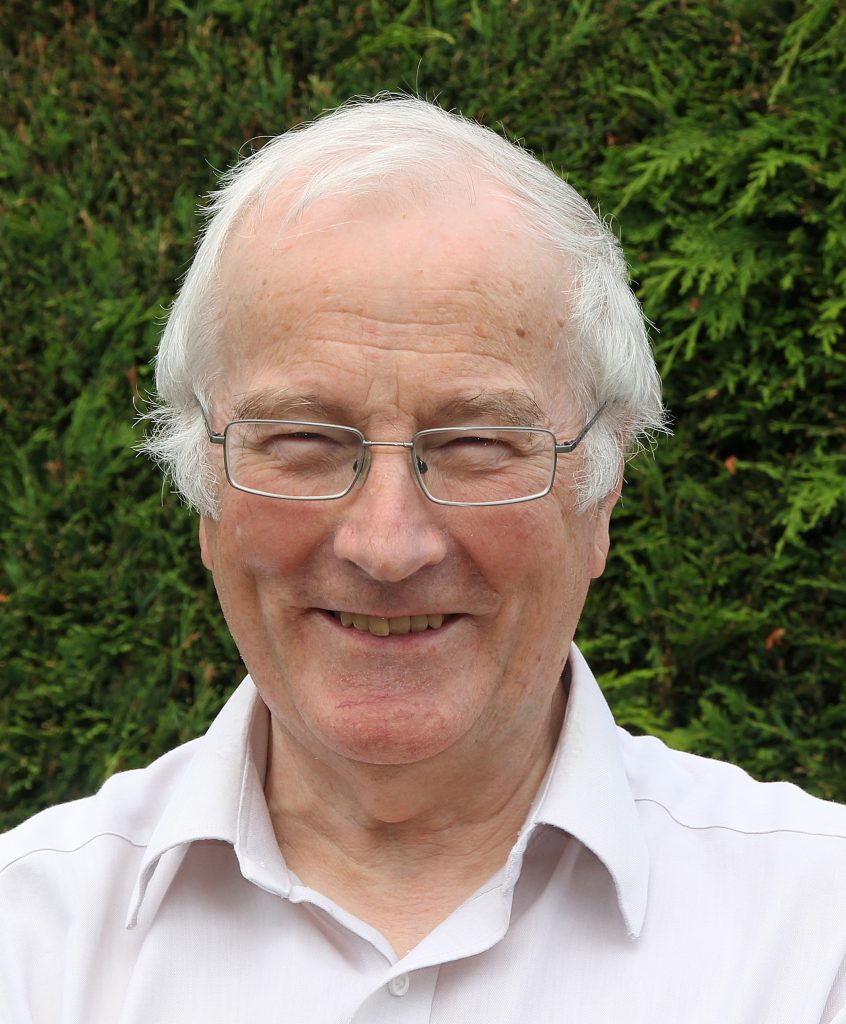
ROBIN JACKSON
Robin has a doctorate in education from the University of Exeter. He spent 10 years at Aberdeen College of Education where he lectured in the Sociology of Education. Then moved to King Alfred’s College (now the University of Winchester) where he was tasked with establishing the first master’s degree in special education in the UK.
After 10 years in Winchester, he returned to Scotland and took up the post of Principal of a residential special school and farm training centre administered by Voluntary Service Aberdeen. Five years later he went on to set up an advocacy service in South Aberdeenshire funded by Aberdeenshire Social Work Department and Grampian Health Board. Drawing on this experience, he co-edited a book entitled Advocacy and Learning Disability.
He then obtained the post of Development and Training Co-ordinator for Camphill Scotland – a body representing the ten Camphill communities in Scotland. A feature of Camphill practice that particularly impressed Robin was the fact that it was based on a model where aspects of care, education, therapeutic and medical activities, the use of crafts and creative arts were all brought together to form a holistic approach to the support and development of children and adults with special needs.
Robin has been an unrepentant advocate of intentional supportive communities – including Camphill villages – and a critic of the way that the policy of community care is currently being implemented. He has written extensively in the professional literature. In 2011 he guest reviewed a Special Issue of the Journal of Intellectual Disability Research on the theme of ‘Residential and community support’.
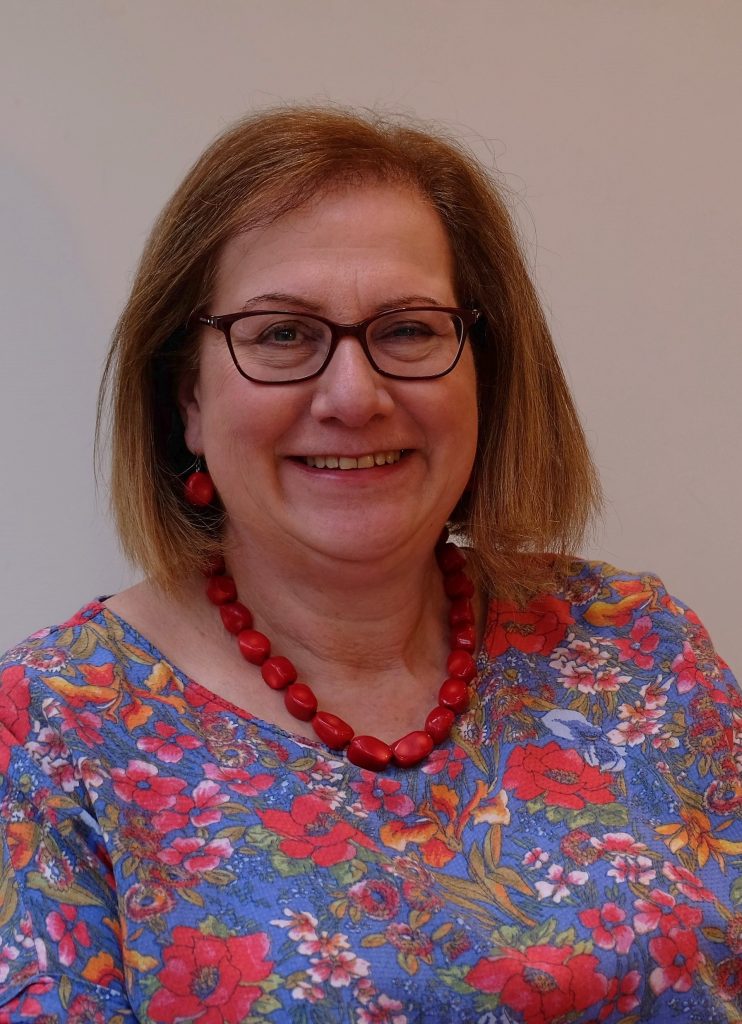
HILARY CASS (Patron)
As a retired paediatrician who specialised in the care of children with physical and learning disability, my goal was to ensure that each and every child and young person received personalised care tailored to their very individual needs.
In the early part of my career, I had some involvement in the move of patients from Harperbury Hospital into the community. I saw many of the adults from Harperbury thrive, and some deteriorate rapidly with less freedom to move around the large campus and reduced input from onsite physiotherapists and creative therapies. Later in my career I realised that they were the same young adults that I worried most about when they were children – those with the most complex and severe learning disability for whom there was often a real scarcity of specialist support. Handing my patients over to adult care was a postcode lottery because I knew they many would not get the same level of holistic support, and I regularly tried to support their parents as the faced the challenge of maintaining the level of therapeutic and social support when their adult children when they transferred to residential provision.
When an extended family member moved into Ravenswood, I realised that it didn’t have to be this way. This very small group of adults with the highest care needs could be cared for, valued and nurtured within a village community that gave them access to stable staffing, opportunities for access to creative therapies and a nearby local community where they were ‘regulars’ in pubs and shops.
I fully appreciate the value of care in small community settings for many adults with learning disability, but I still believe that for some adults there is value in being in intentional village communities where many have lived for decades, and have really strong social networks. This seems to be a matter of choice, in much the same way that retired adults may choose to live in retirement villages. To me it is a human rights issue – if adults can choose to live in kibbutzim or retirement villages, why would that choice be taken away from people with learning disability and the families who advocate for them?